Spiders in Hampton Roads: What You Need to Know to Keep Your Home Pest-Free


If you’ve ever walked through a web in your garage, spotted a creepy crawler in the corner of your bathroom, or found a mysterious bite on your arm—chances are, you’ve had an encounter with a spider. While most spiders are harmless, no one wants them nesting indoors, especially in dark corners of bedrooms, basements, or crawlspaces.
In this blog, we’re breaking down everything homeowners in Hampton Roads should know about spiders: the types you’ll see, which are dangerous, how to prevent infestations, and what to do if you’ve got more than just the occasional eight-legged guest.
Why Are Spiders Common in Hampton Roads?
Our region’s humid climate, access to water, and abundance of other pests (which spiders love to eat) make Hampton Roads a perfect place for spiders to thrive.
While spiders do help control other bugs like mosquitoes, flies, and roaches, they can quickly become a nuisance—especially when they start breeding in crawlspaces, basements, attics, or tucked-away areas of your home.
Common Spiders Found in Hampton Roads
1. Common House Spider
Small, tan or yellowish
Builds webs in corners and ceilings
Harmless, but often abundant
2. Wolf Spider
Large, hairy, and fast-moving
Hunts on foot—doesn’t spin webs
Not dangerous, but intimidating in appearance
3. Cellar Spider (Daddy Longlegs)
Long, thin legs with tiny bodies
Harmless and mostly found in basements
4. Black Widow
Shiny black with a red hourglass marking
Highly venomous—requires immediate attention
Usually hides in dark, undisturbed areas like sheds, garages, and crawlspaces
5. Brown Recluse (rare in our region)
Brown with a violin-shaped marking on the back
Can cause necrotic bites—seek medical care if bitten
Are Spiders Dangerous?
Most spiders are completely harmless and won’t bite unless provoked. In fact, they tend to avoid humans and only bite in self-defense.
However, venomous spiders like black widows and brown recluses do live in Virginia. Their bites can cause serious symptoms, including:
Severe pain or cramping
Nausea or vomiting
Skin lesions or tissue damage
Fever or chills
If you suspect a bite or see one of these spiders, it’s best to call a professional and, in the case of a bite, seek medical attention.
Why You’re Seeing Spiders in Your Home
Spiders usually come inside for three reasons:
Shelter – Cooler temps or excessive rain can push them indoors
Food – If you have lots of bugs, spiders will follow
Breeding Grounds – Warm, undisturbed spaces make ideal egg-laying spots
They’re often found in:
Crawlspaces
Basements
Window corners
Behind furniture
Closets and attic spaces
How to Prevent Spider Infestations
Here’s how to make your home less appealing to spiders:
Eliminate Other Pests: Spiders eat other insects. Controlling bugs like ants, flies, and roaches means less food for spiders—and fewer spiders overall.
Seal Cracks & Gaps: Inspect and caulk entry points around windows, doors, siding, and pipes.
Keep Things Clean & Decluttered: Spiders love dark, quiet areas—like storage boxes and dusty corners. Regular cleaning and reducing clutter disrupts their hiding places.
Use Yellow or Sodium Vapor Lights Outside: These lights attract fewer insects, which means fewer spiders gathering around your porch.
Should You Try DIY Spider Control?
DIY sprays and traps might help temporarily, but they rarely address the root of the problem—which is usually excess moisture, insect activity, or entry points around your home.
The DIY Problem:
Sprays may only kill a few spiders
Webs and eggs often remain untouched
Doesn’t treat the actual infestation
Why Professional Spider Control Works:
At Busby’s Precision Pest, we know where spiders hide and why they’re there. Our spider control service includes:
Full interior & exterior inspection
Identification of species and nesting areas
Targeted treatments in high-risk zones
Removal of webs, egg sacs, and attractants
Long-term prevention strategies
When Are Spiders Most Active?
Spiders can be active year-round indoors, but you’re most likely to notice them in late summer and fall. This is when adult males go in search of mates and often wander into homes.
You may also see more activity after heavy rain (when ground-dwelling spiders seek higher, drier shelter) or as temperatures drop in early winter.
FAQ: Common Spider Questions from Hampton Roads Homeowners
Q: Are most spider bites dangerous?
A: No. Most bites are harmless and may cause slight itching or redness. But if you suspect a black widow or brown recluse bite, seek medical help.
Q: Why do I keep seeing spiders even after cleaning?
A: Spiders are persistent and can enter through very small gaps. Regular cleanings help, but professional sealing and treatment is the best long-term solution.
Q: Should I kill spiders or leave them alone?
A: It’s up to you. Spiders help control pests, but if you're seeing more than a few, it's a sign of an underlying problem—especially if you’re seeing webs everywhere.
Our Spider Control Process
At Busby’s Precision Pest, our spider treatment is thorough and targeted:
Inspection: We look for nests, webs, and food sources
Treatment: We apply spider-safe yet effective solutions inside and outside your home
Prevention: We advise on sealing entry points and keeping the area clean
Maintenance: Regular service ensures spiders don’t come back
Say Goodbye to Unwanted Eight-Legged Guests
Spiders don’t have to take over your home. Whether you’ve spotted a few here and there—or you’re dealing with a full-blown infestation—Busby’s Precision Pest & Damage Control is here to help.
BUSBY PRECISION PEST & DAMAGE CONTROL proudly serves Chesapeake, Virginia Beach, Norfolk, and the entire Hampton Roads area, offering honest pricing, reliable service, and treatments that actually work.


